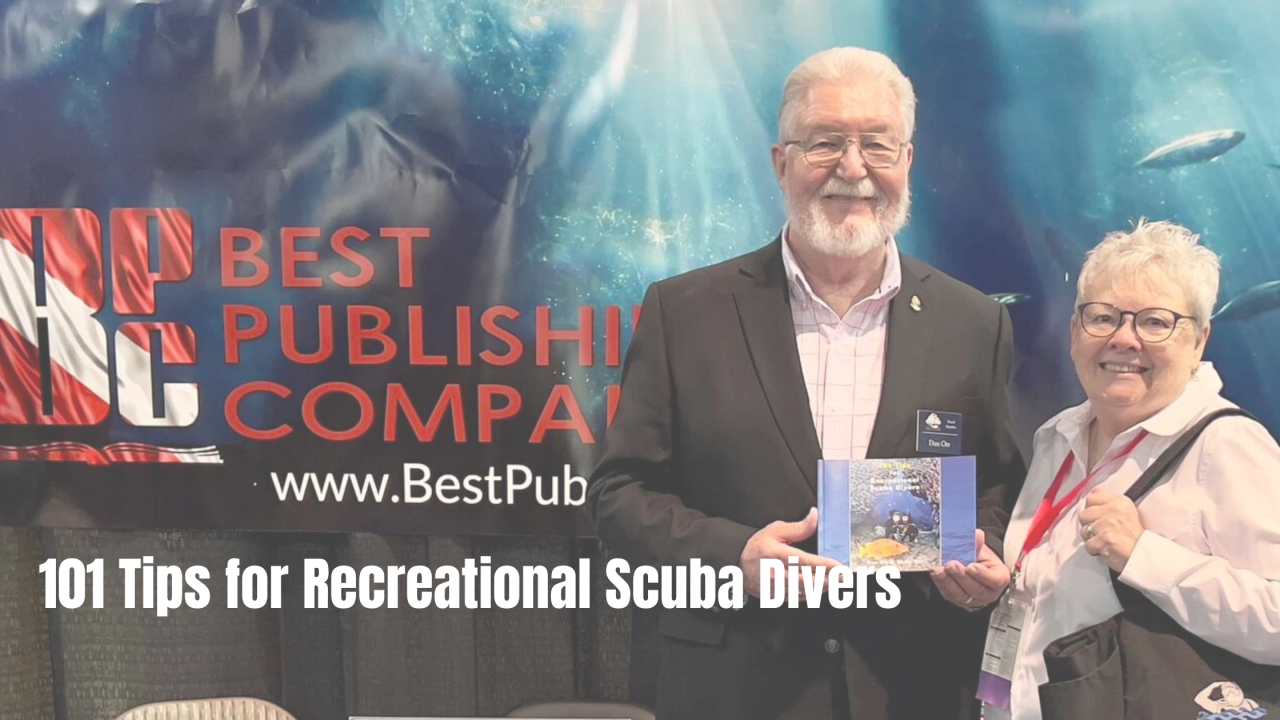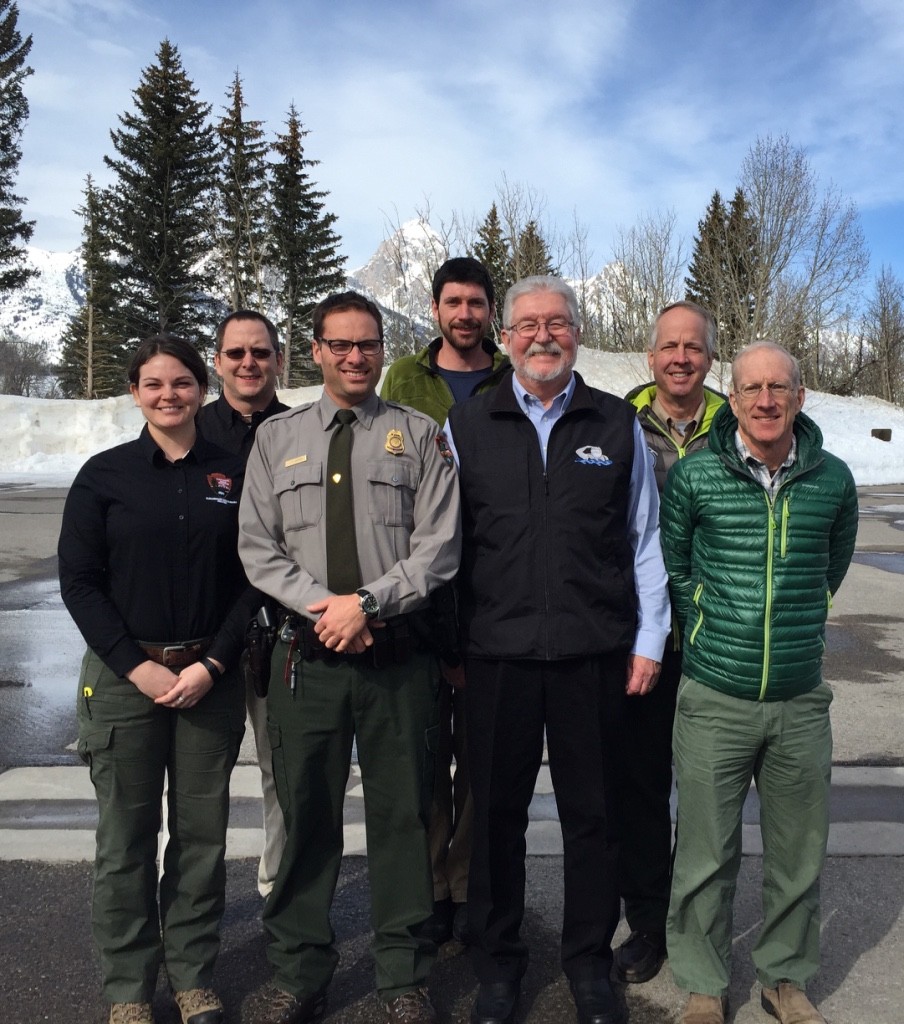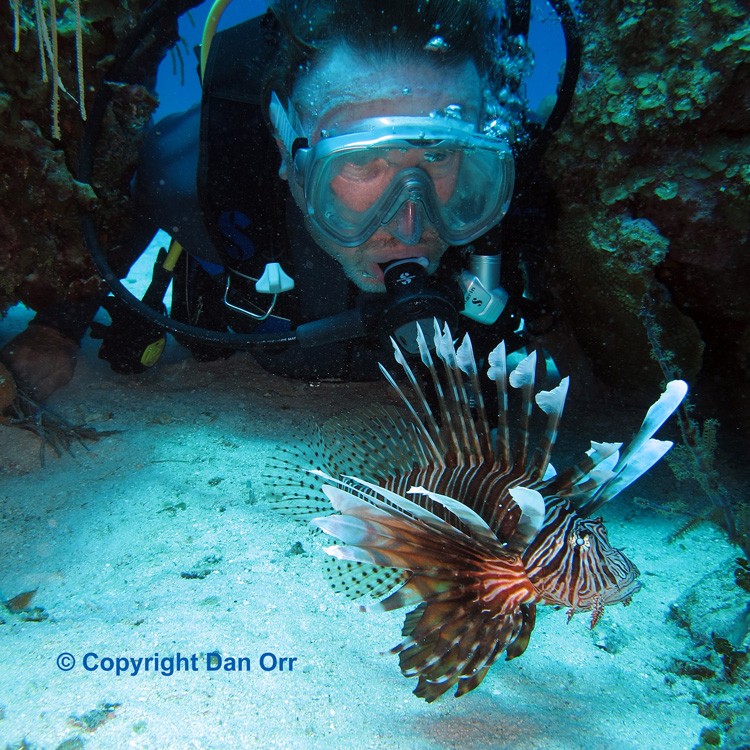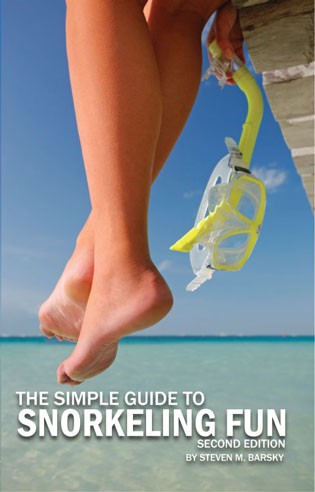101 Tips for Recreational Scuba Divers is designed for recreational scuba divers of any experience level. The book was created to share lessons learned over many years and thousands of diving experiences from two renowned experts in the field of SCUBA, Dan Orr and Betty Orr. The book is a compilation of 101 stand-alone tips designed to guide readers toward their own safe and enjoyable diving practices and help them make informed decisions.
DEPTH Blog
We are thrilled to announce that Dr. David Charash has been named Beneath the Sea Diver of the Year 2025 for Science! This well-deserved recognition celebrates his remarkable and lasting contributions to the diving community. Dr. Charash will be formally honored on Saturday, March 29, 2025, at the Beneath the Sea Awards Reception and Banquet.
Winter time seems appropriate for re-introducing "Cold Water Diving: A Guide to Ice Diving" especially for those of you who experienced last week's nationwide cold snap. John Heine, experienced writer, Diving Safety Instructor, and Polar Programs officer, has been diving in the cold waters of the Arctic and Antarctic for decades. Safe to say this little guide to ice diving is a MUST for anyone wanting to face frigid waters. https://www.bestpub.com/.../442.../category_pathway-42.html
We hope you got to see our Booth Reps, Alyson and Beth last week at DEMA Show in Las Vegas, NV (pictured below). Best Pub Co was at DEMA Show talking to dive business owners about how to establish a new income stream by reselling our books.
Attention Dive Shops & Dive Pros! We're sharing a sneak peek at a new book bundle for distributors that will be rolled out at DEMA Show 202 - it's called the Open Water Scuba Diver Certification Supplemental Book Set.
Photo Caption: Author Dan Orr participates in the Grand Teton National Park Winter EMS Refresher giving lectures on diving safety. As part of the refresher, Dan presented a copy of his book, Scuba Diving Safety, to the GTNP EMS Group for their library.
"Current philosophy dictates that all dives, even those well within the no-stop limits of tables and computers, should include a controlled ascent (dictated by the diver's computer, tables, or personal or training philosophy) and a safety stop. Newly published research recommends slower ascent rates (slower than 60 feet, or 18.2 meters, per minute according to most tables) possibly coupled with multiple safety stops. Reading available data published by the training associations and DAN is a good way to become familiar with the latest information on ascent protocols.
"The ability to manage a diving emergency and provide care to an injured diver does not come from experience alone. The best thing you can do to prepare for the dive-related injuries is to learn everything you can about such injuries and the situations that lead to them.
More than 100 years ago, Sorbonne Professor Paul Bert, the father of pressure physiology, explained, “All symptoms, from the slightest to those that bring on sudden death, are the consequences of the liberation of bubbles of nitrogen in the blood [on-gassing], and even in the tissues, when compression has lasted long enough. The great protection is slowness of decompression [off-gassing].”
In 1982, when David Scalia was evacuated to San Diego after suffering an air embolism to his brain, there was no hyperbaric chamber in the city.
"The signs of emergencies are varied and can be subtle. They may be apparent before or during the dive. A diver's ego or peer pressure may cause the diver to disguise a problem, such as a lack of competence, inadequate experience, overconfidence, anxiety, illness, or distress. Such problems may show up on the boat before anyone gets in the water. All divers should adopt the credo of the cave and technical diving communities: Any diver can call any dive for any reason at any time. No question are asked - and the credo applies before the dive even begins. All divers should agree to this as part of the predive briefing. If more divers felt comfortable not making a dive because it was beyond their experience, or they didn't feel well, or their karma was all wrong, or whatever, there would probably be fewer problems."
If you're a diver, you've most likely heard of the "bends" or "divers disease."
Many of you may have heard of, or know personally, Mr. Dan Orr.
Today marks the start of the annual two-day spiny lobster sport season in Florida, known as "mini-season," and it got us thinking (about more than just dinner) . . .
Copyright
© Best Publishing Company
Last week we released the first video in a new series on preventing diver fatalities. The second video in the series is now available!
In the second video, we discuss two types of common surface related injuries to divers - those that occur during the entrance to a dive site, and boat related injuries.
Copyright
© Best Publishing Company
This month we are discussing how to prevent diver fatalities. As part of that discussion, we are launching a free three-part video series.
Copyright
© Best Publishing Company
When you prepare for a dive trip, there are things you pack that are on the "must have" list, such as mask, fins, BCD, and regulator. Then there are the things that you "should have" such as wetsuit, defog, and sunscreen. All of the other items typically fall onto the "it would be nice to have" list, such as snacks, sunglasses, and a camera. The question we have for you today is, onto which list do your dive rescue and dive accident management skills fall?
Copyright
© Best Publishing Company
Attention Dive Shop Owners and Operators: are you looking to recruit new divers? Check out the great article that ran on DiveNewsWire about a new diver recruitment opportunity using BPC's book, The Simple Guide to Snorkeling Fun, 2nd Edition. Find the DNW article here http://www.divenewswire.com/NewsITems.aspx?newsID=13173. DNW referenced BPC's book "The Simple Guide to Snorkeling Fun" as a great resource for training snorkelers and soon to be divers.
Copyright
© Best Publishing Company











